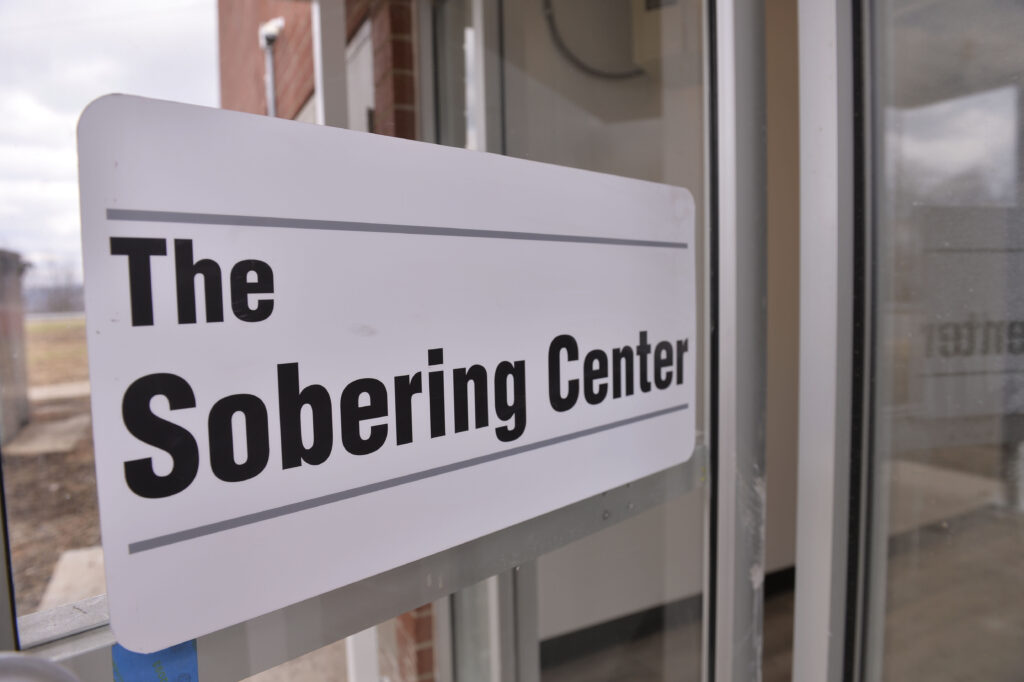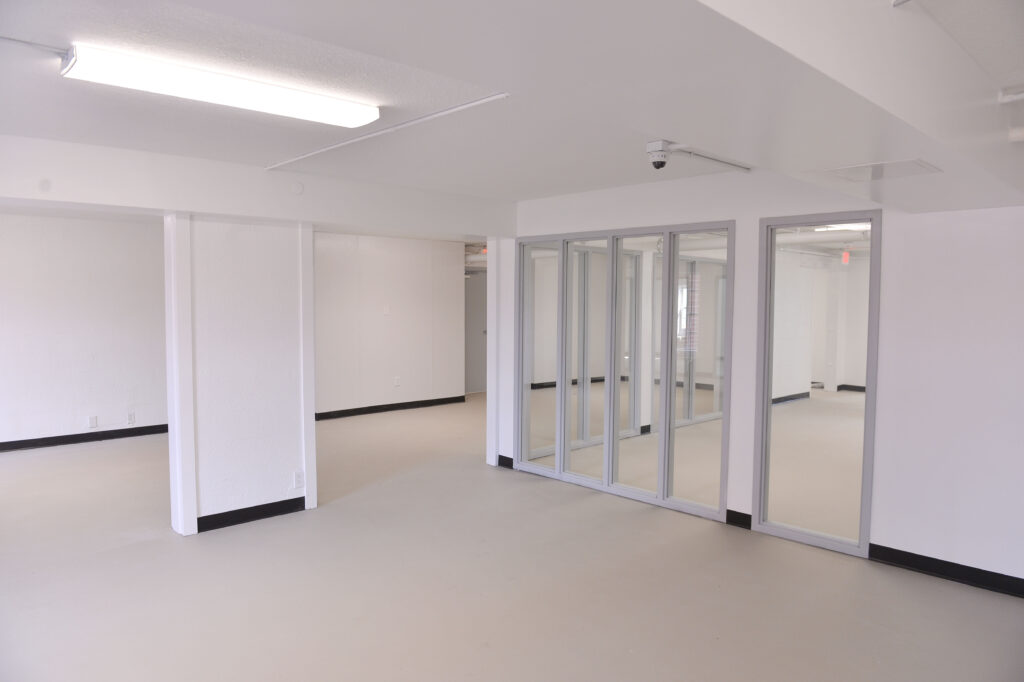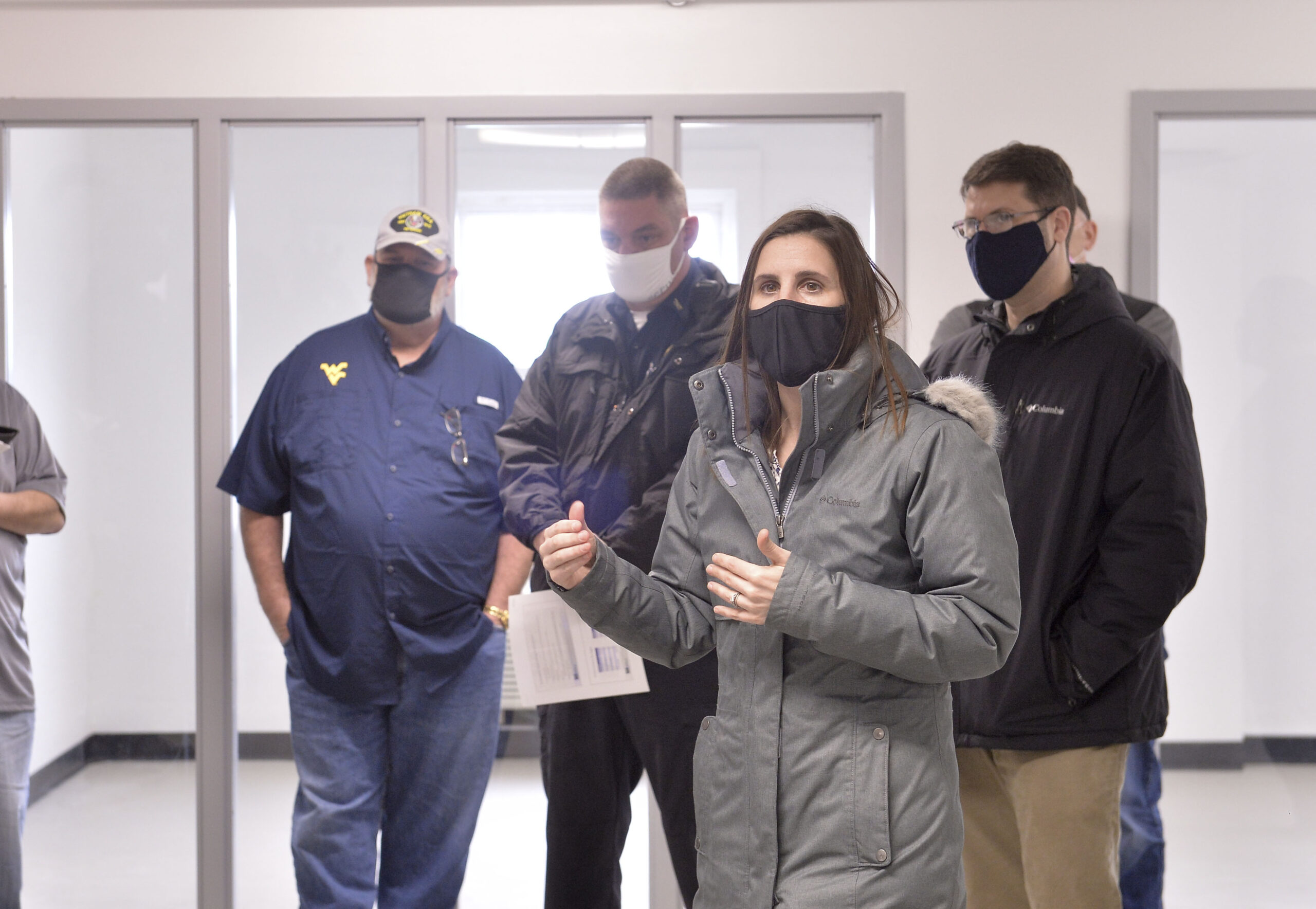MORGANTOWN — Morgantown Assistant City Manager Emily Muzzarelli said the city looked to Texas for guidance in laying the groundwork for the creation of a sobering center.
“This was modeled off of the Austin and Houston sobering centers,” Muzzarelli said Wednesday, during a tour of the new facility on the ground floor of the Morgantown Community Resources building on Scott Avenue.
The roughly 5,100 square-foot sobering center has a dedicated entrance and is largely comprised of central intake and observation centers flanked by a pair of open dormitories.
Muzzarelli said the center will have a minimum of three people on staff and will be staffed 12 hours daily, six days a week to serve as a short-term recovery space for individuals 18 and older who have had a bit too much, but aren’t so publicly intoxicated they need acute medical care.
“Anytime someone is publicly intoxicated, you’re allowed to leave them with a responsible, sober adult. This basically becomes your responsible, sober adult,” she said.

A sobering center has been on the city’s wish list for well over a decade, but cost and facilities were always stumbling blocks. Both of those were cleared last fall when the state awarded Morgantown Community Resources $3.5 million in CARES Act funding to turn a former hotel into a hub for community services.
Muzzarelli said the center will be operated by a nonprofit, which will flesh out the day-to-day operating procedures in conjunction with an executive director.
It will be a “pay-to-play” resource, meaning the municipalities and agencies that help fund it will be able to use it.
So far, Monongalia County has put in $100,000 and the city has $100,000 dedicated to the center in its 2022 budget before city council. Estimates are it’ll take roughly $370,000 to fund the center for the first year.
Morgantown Interim Police Chief Eric Powell said the center will not only give people a place to sober up under the supervision of medically trained personnel, it will also serve as a contact for individuals who are struggling with substance abuse and other underlying issues.
“If there’s a guy coming in three or four times a week and there’s some other underlying condition that’s causing it, it’s a really good way to identify that because you’ve isolated them now. It’s not just one officer dealing with them one day and a different officer dealing with them the next day. … Here you’ll have a centralized location where you’ll have the same people interacting with them all the time,” Powell said. “I think it really has potential to unlock other problems and get them to the right resources.”
According to Muzzarelli, the goal is to have an executive director on board as early as July and the center open this fall.

Assistant City Manager Emily Muzarrelli leads a tour through the Regional Sobering Center in the old Ramada building. 
Assistant City Manager Emily Muzarrelli leads a tour through the Regional Sobering Center in the old Ramada building. 
Interior photo of the Regional Sobering Center in the old Ramada building.
Tweet @DominionPostWV




